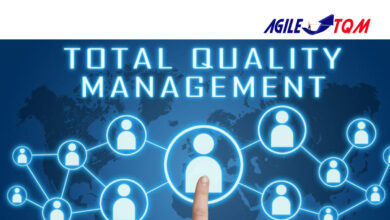supplier-partner relationship approach of dell.

Dell is an American multinational computer technology company that develops, sells, repairs, and supports computers and related products and services. Dell started out as a direct seller, first using a mail-order system, and then taking advantage of the Internet to develop an online sales platform. Dell required a highly reliable supply of top-quality PC components, but management did not want to integrate backward to become its own parts manufacturer. The company sought to develop long-term relationships with name-brand PC component manufacturers. Dell openly shared its production schedules, sales forecasts, and plans for new products with its suppliers. This strategic closeness with supplier partnership allowed Dell to reap the benefits of vertical integration.
- Cost competitiveness
- Understanding of Dell’s business, Proven track record, and references.
- Good financial standing.
- Ability to conduct business electronically, e.g. via e-mail and the internet.
- Competitive advantage and “Value Added” capabilities.
- Ability to grow with Dell.
- Core competency in supplier’s line of business.
- Technological capabilities (hardware & software).
- For production suppliers: Continuity of Supply strategy.
- For production suppliers: Quality processes (ISO 9000 or equivalent).
- Diverse supplier certification by a third party.
Inventory management by suppliers:
Dell requires its suppliers to keep inventory on hand in revolvers or supplier logistics centers (SLCs). Revolvers are small warehouses located within a few miles of Dell’s assembly plants. Each of the revolvers is shared by several suppliers who pay rent for using their revolver. Dell does not own the inventory in its revolvers; this inventory is owned by suppliers and charged to Dell indirectly through component pricing. Dell also required its key suppliers to establish inventory hubs near its own assembly plants. This allowed the company to communicate with supplier inventory hubs in real-time for the delivery of a precise number of required components on short notice. This “just-in-time,” low-inventory strategy reduced the time it took for Dell to bring new PC models to market. Dell and Dell’s suppliers are required to comply with all applicable laws and regulations where business is conducted. The company required its suppliers to achieve and maintain certification on two important international standards; the international organization for standardization (ISO) 14001 environmental management system standards and the occupational health and safety assessment series (OHSAS) 18001.
- Training: Dell focuses on capability building and hosts multiple supplier workshops each year that address relevant areas affecting our suppliers.
- Continuous Improvement: It invests the company’s resources and time toward driving improvements throughout its supply base. It encourages partners to view social and environmental responsibility as a journey of continuous improvement.
- Quarterly Business Reviews: To embed socially responsible behavior into business activities, Dell includes a review of requirements and principles in quarterly business reviews that are held with key suppliers.
- Monitoring: The partnership includes on-site monitoring through an audit, to establish whether the supplier has systems in place to facilitate continued conformance as well as the development of sustainable corrective action plans.
To understand the rationale for partnering with suppliers, one must understand the goal. The goal is to create and maintain a loyal, trusting, reliable relationship that will allow both partners to win. Dell is working with its suppliers, sharing its expertise and best practices, and striving to improve its supplier’s capabilities. And, Dell works to make it possible for its suppliers to uphold the same high standards that it set for itself.

